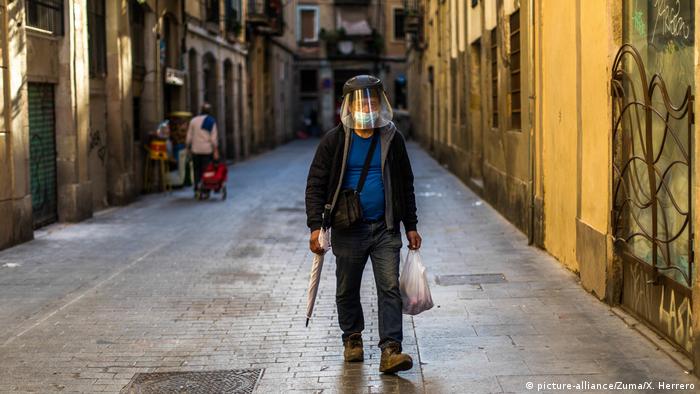Coronavirus: Can European countries avoid a second lockdown?
From empty city centers to shut businesses, this spring's coronavirus lockdowns are seared in the memories of many Europeans. Governments on the continent are desperate to avoid imposing such drastic measures again.
"Catastrophic," "disastrous," and "devastating" — the words European leaders are using to describe the consequences of a second lockdown are more than clear.
In order to curb the spread of COVID-19 in the spring of this year, public life across Europe was brought almost completely to a halt. In the summer, many places relaxed those restrictions. For weeks now, however, infection rates have been rising in almost every European country.
According to the World Health Organization, Europe is registering between 40,000 and 50,000 new coronavirus cases each day. That increase is down to more than just more widespread testing. The numbers from September "should serve as a wake-up call for all of us," said the WHO's regional director for Europe, Hans Kluge. The weekly infection numbers have even exceeded those reported in the first phases of the peak in March, the WHO says.
Read more: Coronavirus trend: The pandemic is far from over
Countries impose regional restrictions
With the increase of infections comes an increase in concern over new nationwide lockdowns. The particularly strict lockdowns in Spain and France imposed earlier this year sparked massive economic downturns, and now these two countries' case numbers are once again surging. Nevertheless, France is hoping to avoid another nationwide lockdown — as long as that's possible.
Instead, authorities are tightening restrictions in particularly hard-hit cities such as Paris, Marseille, Bordeaux, Nice and Toulouse. Gatherings have been banned, bars have their hours limited and visits to nursing homes have been restricted. For people in Paris and other areas, wearing a mask is required when leaving the house.
Madrid, meanwhile, began imposing drastic restrictions on Monday. In six districts and seven municipalities around the Spanish capital, people are only allowed to leave their homes for necessities: going to work, school, the doctor, or if summoned by the court. Similiar lockdown measures have been ordered in other parts of the country, including Mallorca.
Residential areas are affected by the new measures if the number of new infections exceeds 1,000 per 100,000 residents over the past 14 days. It was a "very bad number" that forced authorities to act, said Isabel Ayuso, Madrid's regional president. By comparison, Germany's equivalent figure, measured over the past seven days, is around 13.
"We want to prevent a complete lockdown, it would be a step backward and a disaster for our economy," said Ayuso. "If we all follow the new rules, our region will recover quickly."
Read More Here: DW





